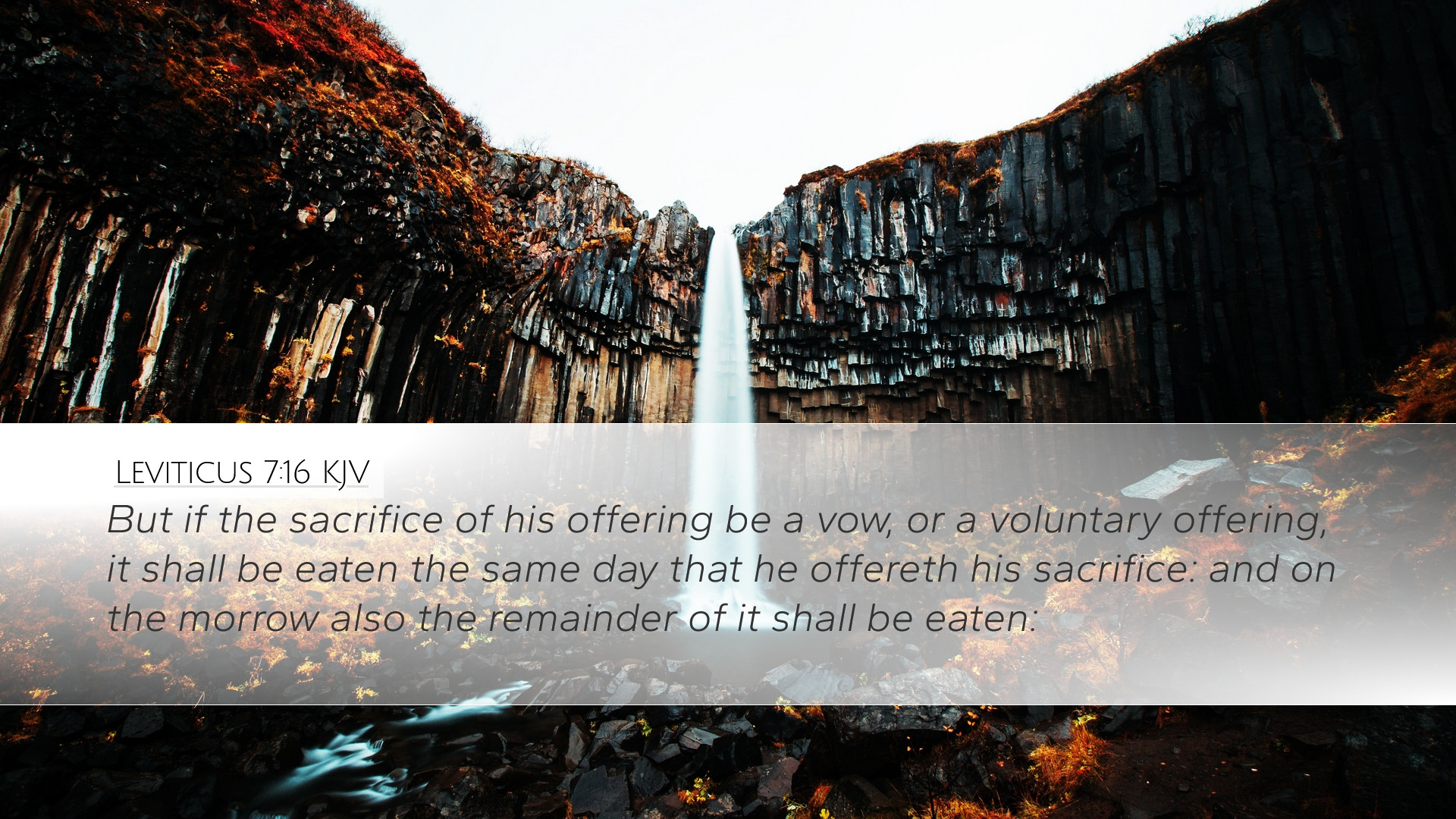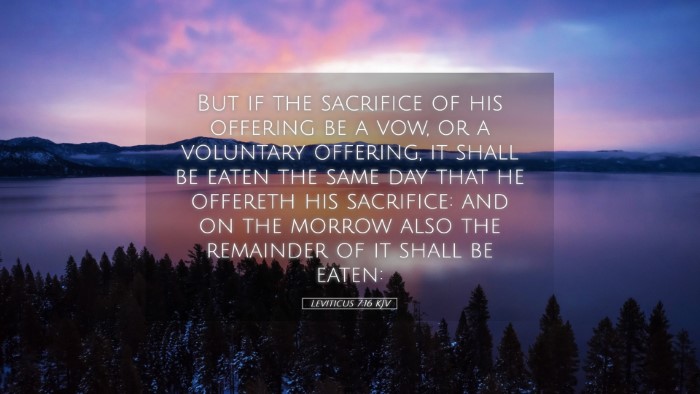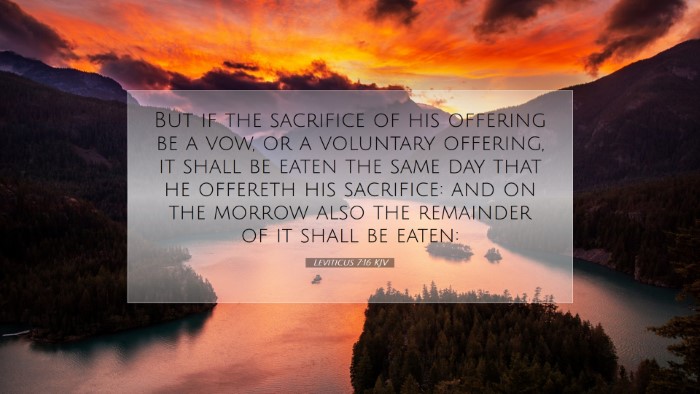Leviticus 7:16 Commentary
Verse Text: "But if the offering of his sacrifice be a vow, or a voluntary offering, it shall be eaten the same day that he offers his sacrifice: and on the morrow also the remainder of it shall be eaten:"
Introduction
The laws detailed in Leviticus were instrumental in establishing a framework for worship and community life in ancient Israel. In examining Leviticus 7:16, we find a significant directive that pertains to the consumption of sacrificial offerings, specifically those made as a vow or voluntary offering. The insights derived from public domain commentaries shed light on the theological and practical implications of this verse.
Textual Analysis
This verse is situated within a larger discourse on the peace offerings. It differentiates between various types of offerings, emphasizing the importance of vows and voluntary offerings, which suggests a personal commitment from the offeror to God. The stipulation that these offerings must be consumed within a specified timeframe reflects a recognition of the sacredness and the communal aspect of these acts of worship.
Matthew Henry's Commentary
Henry emphasizes the intention behind the offering. He notes that voluntary offerings stem from a heart compelled to express gratitude or devotion. According to Henry, such offerings represent a deeper spiritual relationship with God. The stipulation for immediate consumption serves to highlight the joy and positive nature of these offerings, as opposed to sin offerings which were strictly regulated.
Albert Barnes' Notes
Barnes expands this point, noting that the act of consuming the offering symbolizes fellowship between God and the worshiper. The immediacy of eating the offering signifies the urgency and sincerity of the vow made to God. Barnes also suggests that allowing leftover food to be eaten the next day indicates God’s desire for His people to enjoy their relationship with Him, extending the blessing of the sacrifice over an additional time frame.
Adam Clarke's Commentary
Clarke adds a practical dimension to the verse, mentioning how the rules concerning the timing of consumption could be seen as a preventive measure against the corruption of the offering. He underscores the seriousness of vows made to God, implying that delaying consumption could lead to disrespect or dishonor of the commitment made. The instructions serve to bolster accountability and reverence in the worship process.
Theological Implications
Vows and Voluntary Offerings
The nature of vows in the biblical context indicates a significant relational dynamic between the individual and God. The vow signifies an acknowledgment of God’s providence and guidance, with the voluntary offering highlighting a spirit of thankfulness. These acts are intrinsic to personal faith and community worship.
Community and Fellowship
This passage can also be viewed through the lens of community. The communal aspect of consuming sacrifices reinforces the unity and shared experience among the people of Israel. It signifies that the worshiper is not alone in their relationship with God; rather, the community is collectively engaged in a covenantal relationship.
Practical Applications
For modern readers, particularly pastors, students, and theologians, this passage offers several points of reflection:
- Understanding Commitment: The seriousness of vows in today’s faith communities can be highlighted by reflecting on this passage. Encouraging congregants to honor their commitments can foster integrity and accountability.
- Celebrating Community: Emphasizing collaborative worship experiences within the church can indeed replicate the communal elements seen in Levitical sacrifices.
- Gratitude in Practice: Encouraging acts of voluntary giving and thankfulness aligns with the principles of this verse and promotes a culture of generosity.
Conclusion
Leviticus 7:16 encapsulates essential teachings regarding vows, voluntary offerings, and the nature of communal worship. Through the combined insights of Matthew Henry, Albert Barnes, and Adam Clarke, we gain a multifaceted understanding of the importance of sincerity in our relationships with God and each other. As modern believers reflect on this passage, they are invited to explore deeper commitments in their faith journeys and foster a sense of unity within their communities.


